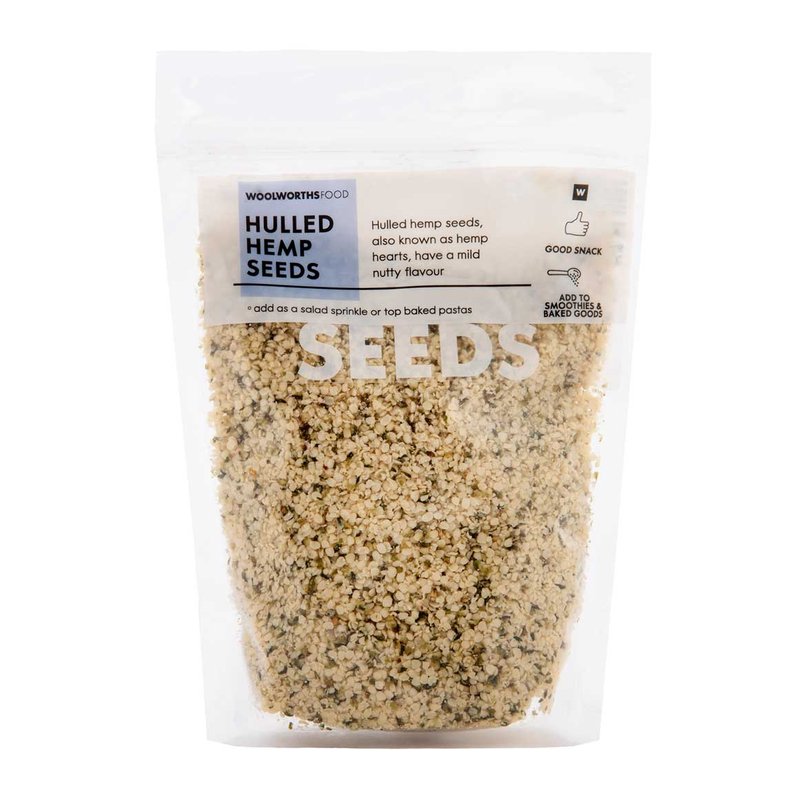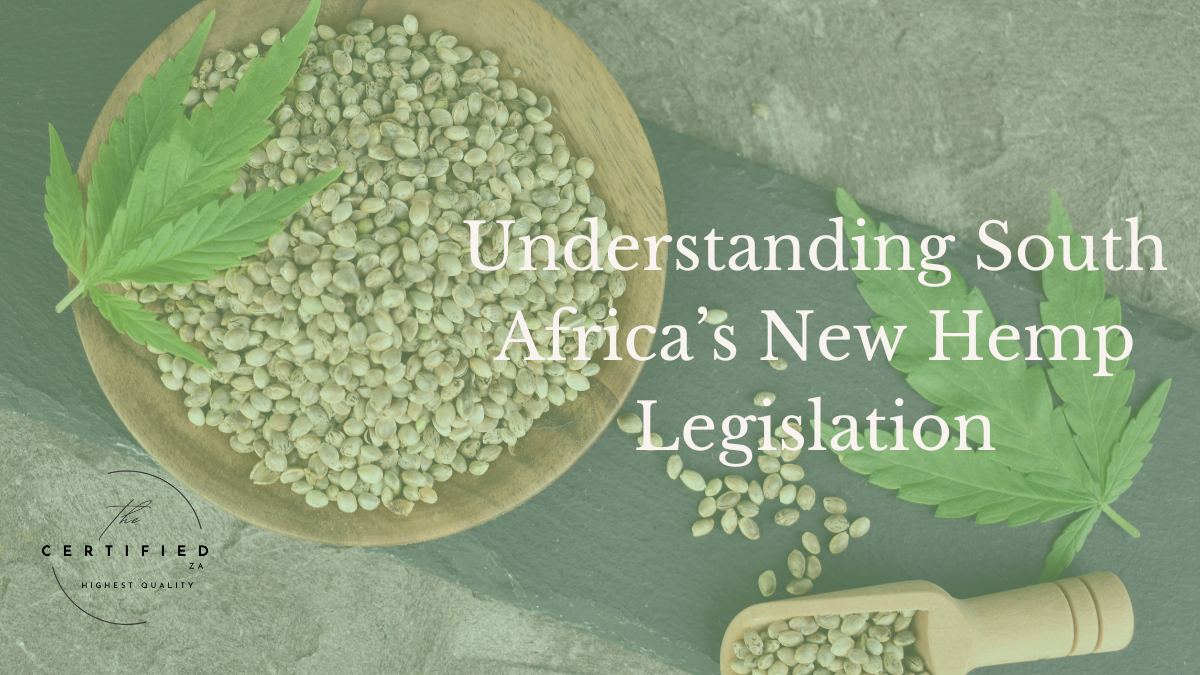
On the 7th of March 2025, the South African Minister of Health signed new legislation under the Foodstuffs, Cosmetics and Disinfectants Act, 1972 (Act No. 54 of 1972), which prohibits the sale, importation, and manufacture of foodstuffs containing any part of the plant or component derived from the genus Cannabis sativa L, hemp, hemp seed oil, or hemp seed flour. This move has sparked significant debate and confusion within both the hemp and cannabis industries. In this blog, we’ll break down what this legislation means, clarify the differences between hemp and cannabis, and explore the implications for businesses and consumers.
Hemp vs. Cannabis: What’s the Difference?
First, it’s crucial to understand the distinction between hemp and cannabis, as the two are often conflated but are legally and chemically distinct. One of the most common questions in the cannabis and hemp industries is whether hemp and cannabis are the same thing. The short answer is yes—and no. While both hemp and cannabis come from the same plant species, Cannabis sativa L., they are classified differently based on their THC (tetrahydrocannabinol) content and their intended use. This distinction is not rooted in botany but in human use and legal interpretation.
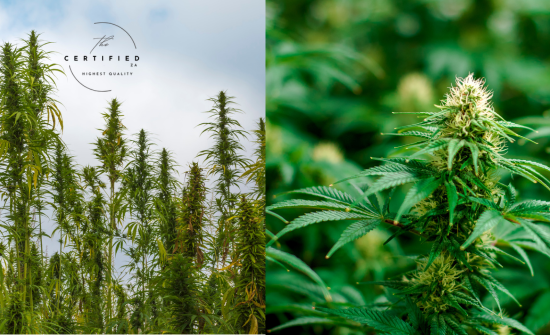
The Genetics of Hemp and Cannabis
Scientifically, hemp and cannabis are two classifications of the same species, Cannabis sativa L. Both contain cannabinoids such as THC and CBD (cannabidiol), but it’s the concentration of THC—the psychoactive compound—that differentiates them under most legal frameworks.
Cannabis: Refers to varieties with higher THC levels (typically over 0.3%), cultivated for recreational, medicinal, and therapeutic purposes. These strains are often bred to produce resin-rich flowers with high cannabinoid concentrations, making them ideal for consumption or extraction.
Hemp refers to varieties bred for industrial use, with THC levels below the legal threshold of 0.3% (or 0.2% in some countries). Hemp plants are typically taller, with fewer flowers, and optimised for fibre and seed production. In South Africa, for example, our landrace cannabis strains naturally thrive with low THC levels, but they still exceed the legal threshold for industrial hemp, making them unsuitable for industrial applications.
The genetic divergence between hemp and cannabis is largely a result of selective breeding rather than natural evolution. Industrial hemp strains are bred to minimise THC and maximize stalk and seed output, while cannabis cultivars focus on producing resin-rich flowers with higher cannabinoid concentrations. This divergence has been driven by legal frameworks that impose strict divides between the two, limiting the plant’s full potential. For a deeper dive into this, you can check out our blog on Cannabis and Hemp.
The key takeaway here is that the new legislation specifically targets hemp-derived foodstuffs, not cannabis products. However, the confusion arises because both hemp and cannabis come from the same plant species, leading many in the cannabis industry to mistakenly believe that this law affects their sector.
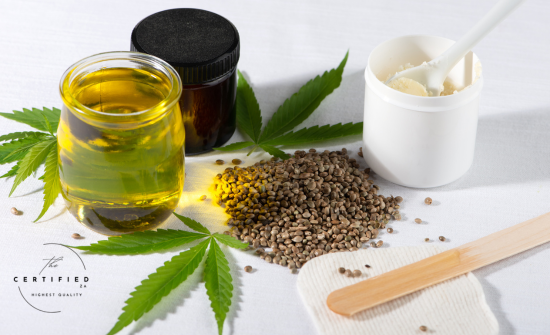
What Does the New Legislation Prohibit?
Prohibition of sale, importation and manufacture of foodstuffs containing any part of the plant or component derived from the genus Cannabis sativa L, Hemp, Hemp seed oil or hemp seed flour
No one may sell, manufacture or import, processed or unprocessed, foodstuff containing:
(a) any part of the plant or component from the genus Cannabis which includes C.sativa, C.indica and C.ruderalis, or
(b) hemp seed oil or powder from any component derived from the genus Cannabis sativa L, and various species or sub-species in the genus Cannabis sativa.
Offences and penalties
Any person who sells, imports or manufactures foodstuff containing the prohibited substances as contemplated in Regulation 2 is guilty of an offence and is liable on conviction to a fine or to imprisonment as prescribed in Section 18 of the Act.
This legislation effectively prohibits the sale, importation, and manufacture of foodstuffs that contain any part of the Cannabis sativa L plant, including hemp, hemp seed oil, or hemp seed flour. Violations of this regulation can result in fines or imprisonment as outlined in Section 18 of the Foodstuffs, Cosmetics and Disinfectants Act, 1972.
This means that companies producing and selling hemp-based food products, such as hemp seed oil, hemp protein powder, and other consumables, are now required to cease these activities or face legal consequences.
Impact on the Hemp Industry
The legislation is a significant blow to the hemp industry, particularly for businesses that have been producing and selling hemp-based food products. Companies like Checkers, Dis-Chem, Woolworths, Health Connection, Whole Foods, and Superfoods have been offering hemp seed oil, hemp seed powder, and other hemp-derived consumables. These companies are now grappling with how to comply with the new regulations.
Superfoods: The company has stated that they are still figuring out how to proceed but have not yet removed their hemp products from their online store.
Woolworths: They have reached out to the technical food department for guidance but, as of now, have not removed their hemp products from shelves. Product code: 6009217900923 –
This legislation not only affects businesses but also consumers who rely on hemp-based products for their nutritional benefits. Many of these consumers don’t use cannabis. They are often the more health-conscious consumers, using hemp seed, and hemp seed powder as added benefits to smoothies and salads.
The Nutritional Benefits of Hemp
Hemp seeds and hemp-derived products are known for their nutritional benefits, including:
- Rich in Omega-3 and Omega-6 Fatty Acids: Essential for heart health and brain function.
- High in Protein: A complete protein source, containing all nine essential amino acids.
- Packed with Vitamins and Minerals: Including vitamin E, magnesium, phosphorus, and potassium.
Misconceptions in the Cannabis Industry
One of the most significant points of confusion is the belief that this legislation impacts the cannabis industry, particularly the sale of cannabis edibles. However, it’s important to clarify that the sale of cannabis edibles has never been legal in South Africa. This legislation specifically targets hemp-derived foodstuffs, not cannabis products.
The black market for cannabis products, including edibles, will likely continue to operate as it has been, as this legislation does not directly impact the illegal cannabis market. However, the confusion highlights the need for better education and communication about the differences between hemp and cannabis.
Why the Ban on Hemp Foodstuffs?
While the legislation may seem restrictive, it’s essential to consider the potential risks of unregulated hemp foodstuffs. Without proper regulation, there could be inconsistencies in the quality, safety, and labelling of hemp-based products, which could pose risks to consumers. However, this move has been met with criticism, as there are already regulations in place for the processing and packaging of foodstuffs. The new law may create confusion and challenges for businesses that have been compliant with existing food safety standards.
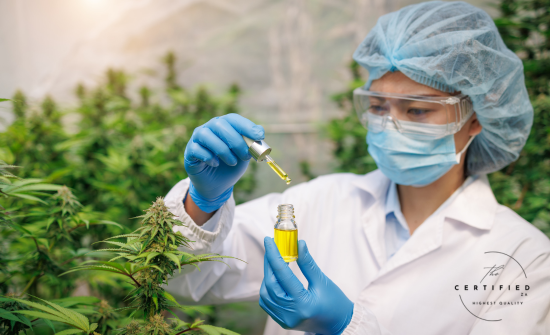
The prohibition of hemp-based foodstuffs could be seen as a setback for consumers who rely on these products for their health benefits. Many people are submitting letters to the president, highlighting the nutritional value of hemp and advocating for its continued use in food products.
What Can Be Done?
Advocacy: Industry stakeholders, health experts, and consumers can continue to advocate for hemp’s benefits and push for a reconsideration of the legislation. This could involve submitting evidence-based arguments to the government highlighting hemp’s economic and health benefits.
Compliance: Companies currently selling hemp-based foodstuffs will need to comply with the new regulations, which may involve reformulating products or finding alternative ingredients. How fast this compliance will be taken into account or enforced is a whole other conversation we can have. Currently, if you do a Google search for hemp seed oil you would still be able to buy some. We can assume the lack of communication will cause many more issues as things progress in this complex cannabis and hemp industry of ours.
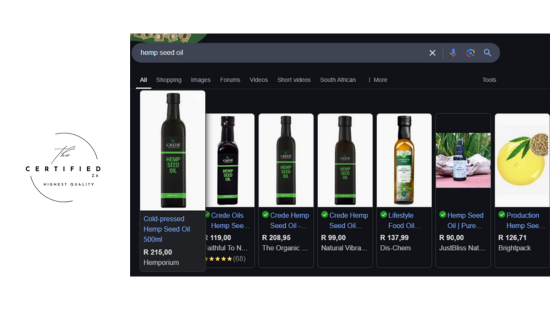
Education: It’s crucial to educate both the public and industry players about the differences between hemp and cannabis, and to clarify that this legislation does not impact the recreational cannabis market as they wanted to be affected by it. I have seen more upset voices in WhatsApp groups than from Dischem who is selling hemp foodstuffs… So there is that.
The new legislation represents a significant shift for the hemp industry, particularly for companies producing hemp-based foodstuffs. While it does not directly impact the cannabis industry, clear communication is needed to avoid misconceptions. The prohibition of hemp-derived foodstuffs could have negative implications for both businesses and consumers, but it also highlights the need for proper regulation and standardization in the industry.

